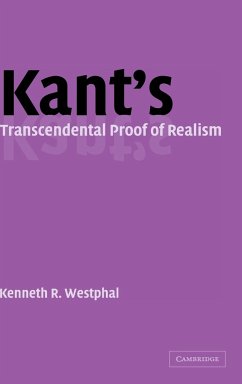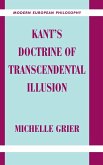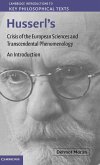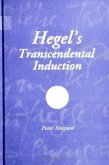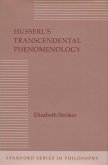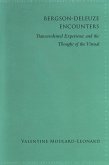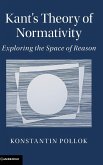Short description/annotation
The first detailed study of Kant's method of 'transcendental reflection' and its use in the Critique of Pure Reason.
Main description
This book is the first detailed study of Kant's method of 'transcendental reflection' and its use in the Critique of Pure Reason to identify our basic human cognitive capacities, and to justify Kant's transcendental proofs of the necessary a priori conditions for the possibility of self-conscious human experience. Kenneth Westphal, in a closely argued internal critique of Kant's analysis, shows that if we take Kant's project seriously in its own terms, the result is not transcendental idealism but (unqualified) realism regarding physical objects. Westphal attends to neglected topics - Kant's analyses of the transcendental affinity of the sensory manifold, the 'lifelessness of matter', fallibilism, the semantics of cognitive reference, four externalist aspects of Kant's views, and the importance of Kant's Metaphysical Foundations for the Critique of Pure Reason - that illuminate Kant's enterprise in new and valuable ways. His book will appeal to all who are interested in Kant's theoretical philosophy.
Table of contents:
Introduction; 1. Kant's methods: transcendental and epistemic reflection; 2. The metaphysics of Kant's transcendental idealism; 3. Transcendental affinity; 4. The gap in Kant's Critique of Pure Reason; 5. Kant's dynamic misconstructions; 6. Kant's metaphysical proof of the law of inertia; 7. Three Kantian insights; Appendix: Summary of Kant's Transcendental Proof of the Legitimacy of Causal Judgments.
The first detailed study of Kant's method of 'transcendental reflection' and its use in the Critique of Pure Reason.
Main description
This book is the first detailed study of Kant's method of 'transcendental reflection' and its use in the Critique of Pure Reason to identify our basic human cognitive capacities, and to justify Kant's transcendental proofs of the necessary a priori conditions for the possibility of self-conscious human experience. Kenneth Westphal, in a closely argued internal critique of Kant's analysis, shows that if we take Kant's project seriously in its own terms, the result is not transcendental idealism but (unqualified) realism regarding physical objects. Westphal attends to neglected topics - Kant's analyses of the transcendental affinity of the sensory manifold, the 'lifelessness of matter', fallibilism, the semantics of cognitive reference, four externalist aspects of Kant's views, and the importance of Kant's Metaphysical Foundations for the Critique of Pure Reason - that illuminate Kant's enterprise in new and valuable ways. His book will appeal to all who are interested in Kant's theoretical philosophy.
Table of contents:
Introduction; 1. Kant's methods: transcendental and epistemic reflection; 2. The metaphysics of Kant's transcendental idealism; 3. Transcendental affinity; 4. The gap in Kant's Critique of Pure Reason; 5. Kant's dynamic misconstructions; 6. Kant's metaphysical proof of the law of inertia; 7. Three Kantian insights; Appendix: Summary of Kant's Transcendental Proof of the Legitimacy of Causal Judgments.

